How the top 25 colleges and universities in the US are responding to the Black Lives Matter protests
Joey Hadden

- Universities like Columbia, Harvard, the Massachusetts Institute of Technology (MIT), declared Juneteenth a holiday following weeks of protests over the death of George Floyd in police custody.
- The Massachusetts Institute of Technology (MIT) and others, like the University of Southern California (USC), held virtual vigils.
- Here's how the top 25 US colleges and universities have responded to the Black Lives Matter protests.
University of Texas at Austin
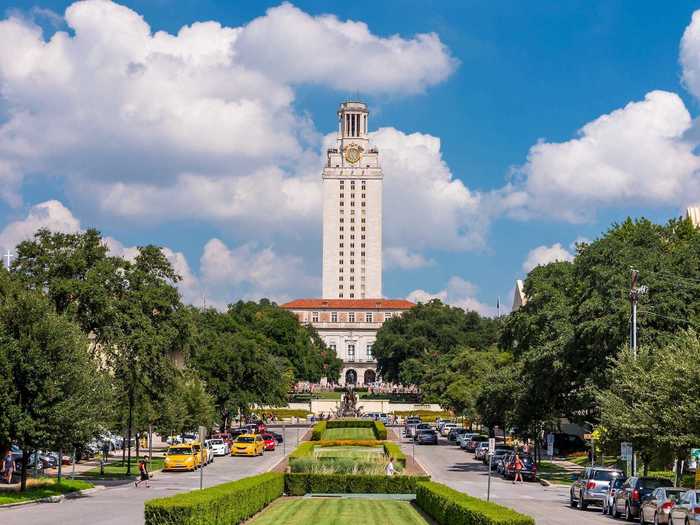
Location: Austin, Texas
University response: Jay Hartzell, the interim president of the University of Texas (UT), first addressed the death of George Floyd in a letter to the campus community on June 1. Titled "Turbulent and Difficult Times," the letter stated that the university can provide solutions through these difficult times by spreading knowledge to combat injustice.
The university followed up Hartzell's initial response by releasing a webinar, "Managing in the Age of George Floyd and Breonna Taylor", and other resources on June 12.
Hartzell released another brief letter three days later. Titled "Listening Closely and Moving Forward Together," he shared that he is listening to the concerns of the UT community to figure out a plan for overcoming racism.
Hartzell recognized Juneteenth in a letter to the UT community that encouraged faculty and students to use their work hours to spend time with friends and family and reflect on the meaning of the historic day.
University of Washington
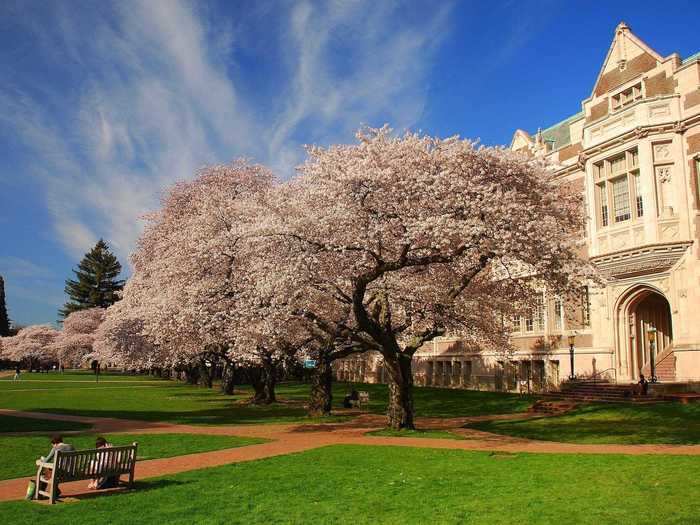
Location: Seattle, Washington
University response: President Ana Mari Cauce released a letter on May 30 calling on the University of Washington community to create a "new normal" in paying attention to equality the same way people are changing the way they lead their lives through the coronavirus pandemic.
Cauce also called out the "structural inequities and the institutional racism" laid bare by the pandemic.
"George Floyd, Ahmaud Arbery, Breonna Taylor — say their names, see their faces, hear their cries. Weep, then act," she added.
In a letter recognizing and celebrating Juneteenth, Cauce shared resources with community members to learn more about the holiday.
Georgetown University
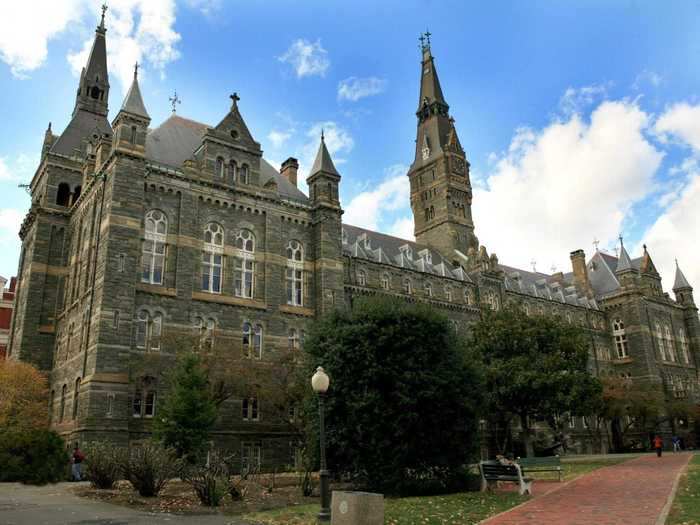
Location: Washington, DC
University response: Georgetown University President John DeGioia released a letter on May 31 addressing the recent deaths of Floyd in Minnesota, Breonna Taylor in Kentucky, and Ahmaud Arbery in Georgia.
Titled "Confronting Racism," it also cited the school and the president's reflections on the deaths of Michael Brown, Eric Garner, and the demonstration in Charlottesville, Virginia.
DeGioia called on all members of the community to confront racism and work towards equality.
DeGioia officially recognizing Juneteenth as a holiday at Georgetown University in a more recent letter to the school community.
Rice University
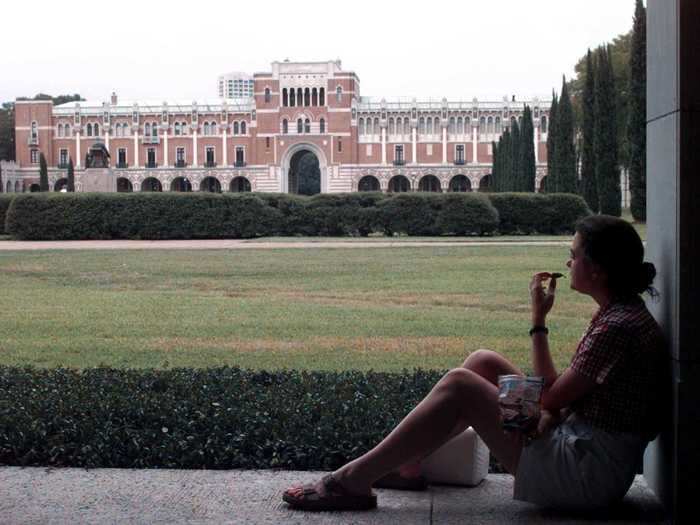
Location: Houston, Texas
University response: Rice University President David Leebron released a letter to the campus community on May 30 acknowledging the deaths of several Black Americans in the hands of police, including Arbery, Taylor, and Floyd. Leebron said that all these cases involved "Black Americans who were treated as a threat when they weren't" and "who were killed when the circumstances provided no justification."
Leebron included a call to come together and build a more inclusive environment at the university.
In a follow-up letter to the school community on June 16, Leebron outlined the school's plans to create new management positions geared towards race, diversity, and inclusion. Leebron added that there will be a diversity and cultural understanding class included in the required orientation coursework.
The university is also starting a student fund for the Center for Civic Leadership and a research fund dedicated to anti-racism.
Boston University
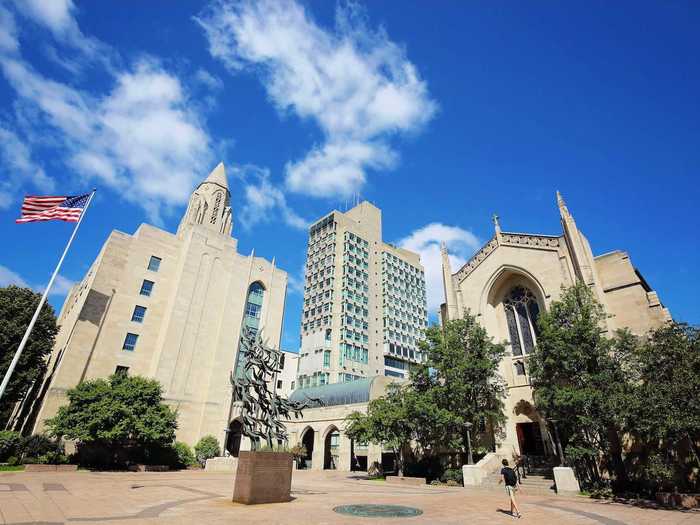
Location: Boston, Massachusetts
University response: University President Robert Brown' released a letter on June 1 saying that the university must be as active in responding to systemic racism as it is about defeating the coronavirus.
To do this, Brown continued, Boston University is trying its hardest to bring students back together on campus in the fall. "Our residential community brings together students from every background to live and learn together ... in an atmosphere that promotes mutual understanding and respect," he wrote.
After receiving backlash from the campus community, Brown apologized a few days later for talking about returning to campus in the same letter as addressing systemic racism.
On June 24, the university conducted a full day of virtual sessions about racial justice led by university leaders.
Brown University
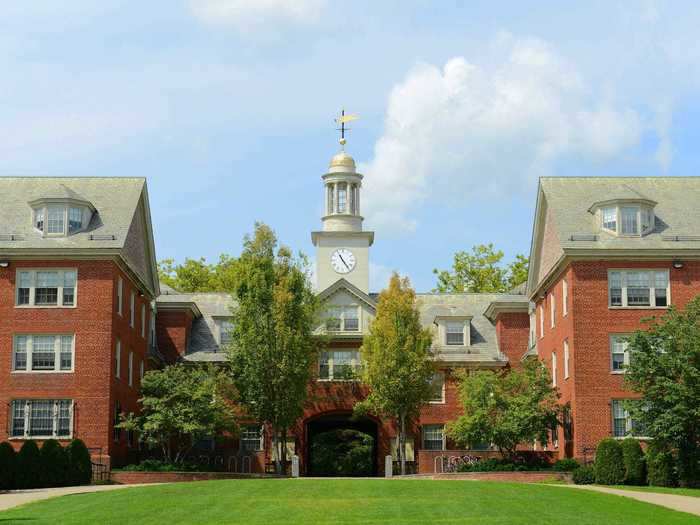
Location: Providence, Rhode Island
University response: On June 1, Brown University released a letter signed by 21 senior university leaders expressing sadness and anger at the deaths of Floyd, Arbery, and Taylor. The letter calls this moment "historical, lasting and persistent" and looks back at the deaths of Sandra Bland, Garner, and Brown, and questions what it would take to end racism.
The letter also said that the coronavirus is "disproportionally killing Black people," and urged the community to persistently reach out to local and national leaders about issues of racial injustice.
The university shared that it would spend the next few weeks coming up with ways to implement coursework designed to promote equality and justice.
Brown followed up its initial response by declaring Juneteenth an official university holiday and announcing plans to create a task force focused on anti-Black racism.
The California Institute of Technology
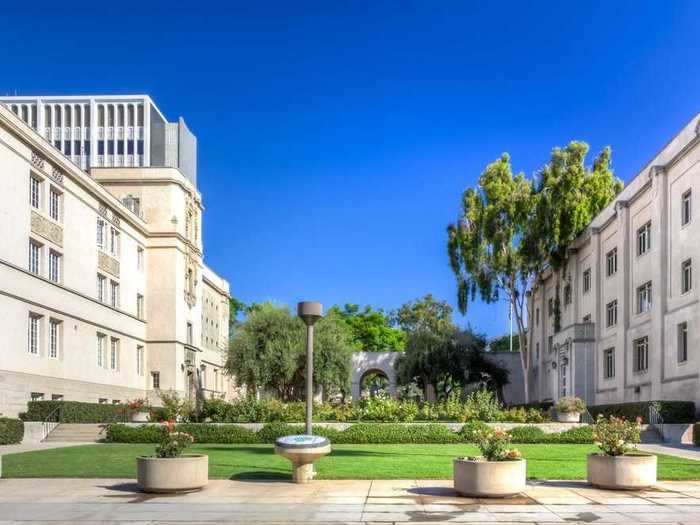
Location: Pasadena, California
University response: The California Institute of Technology (CalTech) released a letter on June 4 outlining new initiatives like a campus-wide unconscious bias training and a study that it says will help the university better understand the underrepresented members of the community.
The letter also discussed CalTech's recent history addressing racial injustice over the last six years, noting record undergraduate diversity.
University of Michigan

Location: Ann Arbor, Michigan
University response: University of Michigan President Mark Schlissel released a letter on May 29 saying he was horrified by Floyd's death and thanking community members who have shared their personal feelings about the situation.
Alongside Floyd, Schlissel addressed the deaths of Taylor and Arbery. He discussed the University of Michigan's research on police interactions with Black people and said it's the school's duty to fight for justice and equality.
Schlissel closed the statement with a reference to the university's counseling resources.
Schlissel released another letter the following week that linked to a page of more than 30 letters from university leaders regarding Floyd's death and systemic racism in the U.S.
Carnegie Mellon University
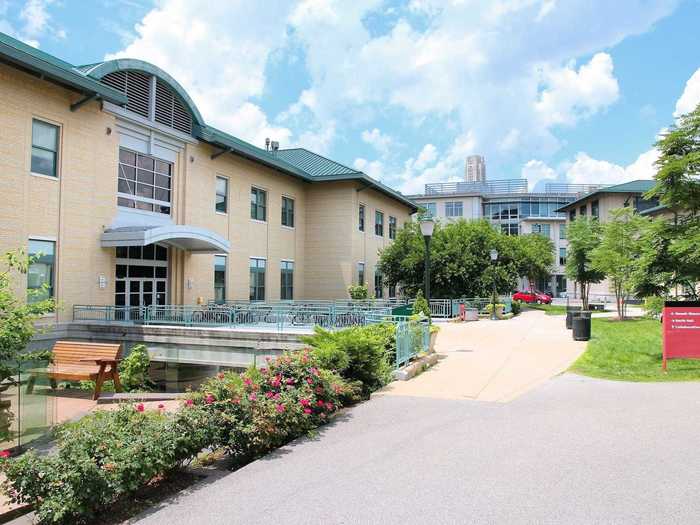
Location: Pittsburgh, Pennsylvania
University response: Carnegie Mellon University released a letter on May 30 that addressed the deaths of Floyd, Taylor, and Arbery and expressed concern for the victim's families and others that are hurting during this time. It also called on community members to come together to dismantle systemic racism by reflecting on "what we can do to make society, including our own community, more just."
Northwestern University
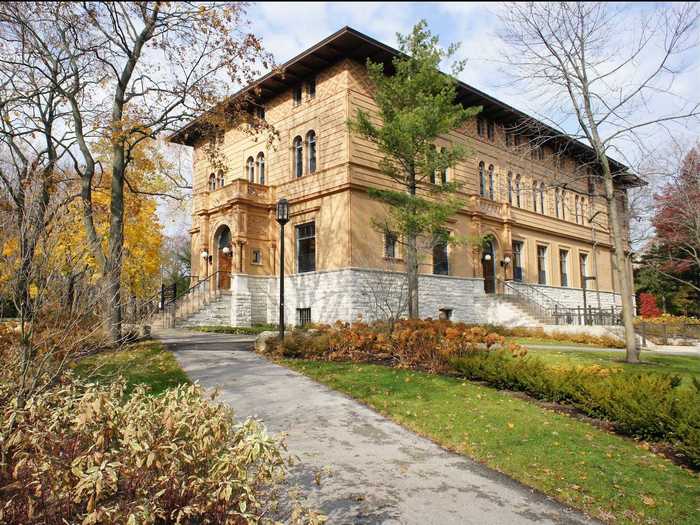
Location: Evanston, Illinois
University response: Northwestern University President Morton Schapiro released a brief letter on May 29 about Floyd's death, saying he "felt outrage and disgust." Schapiro also called the arrest of a CNN reporter amid protests "sickening."
The university is grieving the impacts of systemic racism, he said.
Schapiro referenced Dean Charles Whitaker's statement and pledged to work towards ending systemic racism.
"We can all increase our resolve to create a Northwestern community, and a world, where all people are accorded the dignity and the safety they deserve," Schapiro wrote.
Several other university leaders followed suit in the days and weeks that followed with letters on committing to social justice, supporting the Black community at Northwestern, and getting support and care during this time.
The University of Southern California
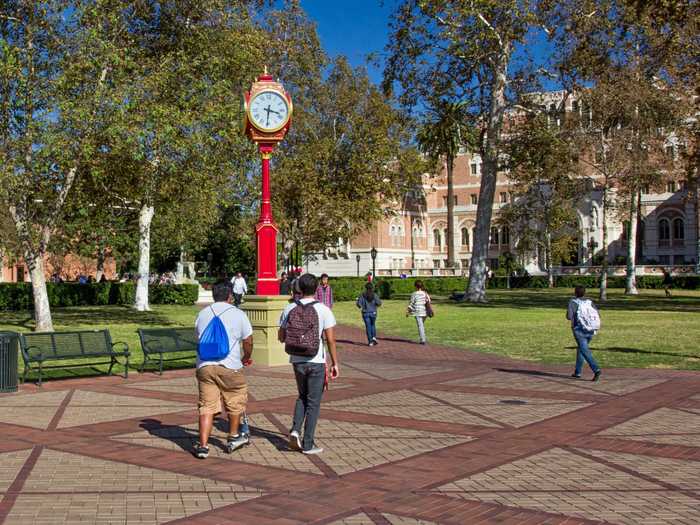
Location: Los Angeles
University response: In a May 31 letter, Carol Folt, president of the University of Southern California (USC) asked the community to come together and confront racism by reflecting on where it exists within the university.
The community held a virtual vigil the following week.
Folt released a second letter on June 11 outlining a plan with six steps that USC is taking to confront and combat racism, including renaming a building that was named after a former president of the university — Rufus Von KleinSmid — who supported eugenics.
Johns Hopkins University

Location: Baltimore, Maryland
University response: John Hopkins University President Ronald Daniels released a letter on May 31 addressing the need for the university needs to play a role in talking about racial injustice. The letter ended included resources for diversity and inclusion and student wellness.
The University confirmed to Business Insider it is planning a virtual town hall on racial injustice.
On June 12, Daniels shared that John Hopkins is pausing the implementation of a campus police department for at least two years.
The following week, the school announced that it would close at noon on Juneteenth and provided resources for learning about racial justice.
Duke University

Location: Durham, North Carolina
University response: Duke University president Vincent Price released a statement on May 30 addressing the deaths of Floyd, Taylor, and Arbery and the role of systematic racism in the U.S. and the world adding that the university has to work together to confront racism. It "will continue the work of addressing generations of racism and injustice, of seeking ways to approach one another with respect, and of building communities that are truly safe, supportive, and inclusive for all," he wrote.
Prince followed up about two weeks later with another letter encouraging community members to rest and reflect on Juneteenth and outlining the university's anti-racist initiatives. Some of these include incorporating anti-racist teachings into coursework and diversifying staff and students with a focus on being inclusive of those who are Black, Indigenous, and people of color.
The University of Chicago
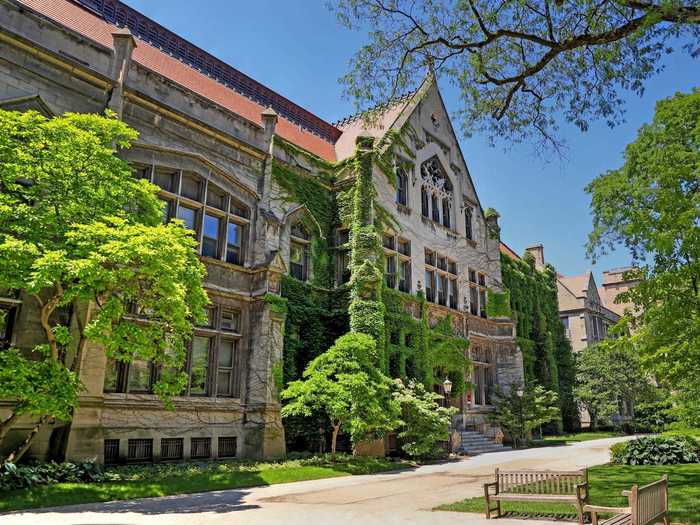
Location: Chicago, Illinois
University response: The University of Chicago Provost Ka Yee C. Lee released a statement about Floyd's death on May 31, saying that it was the result of a racist system. Lee encouraged community members to take care of each other during this time and to always respect one another. The statement ended with a list of relevant campus resources for student wellness and learning about racial injustice.
The university also recognized and celebrated Juneteenth, inviting the community to use the day to reflect.
New York University (NYU)
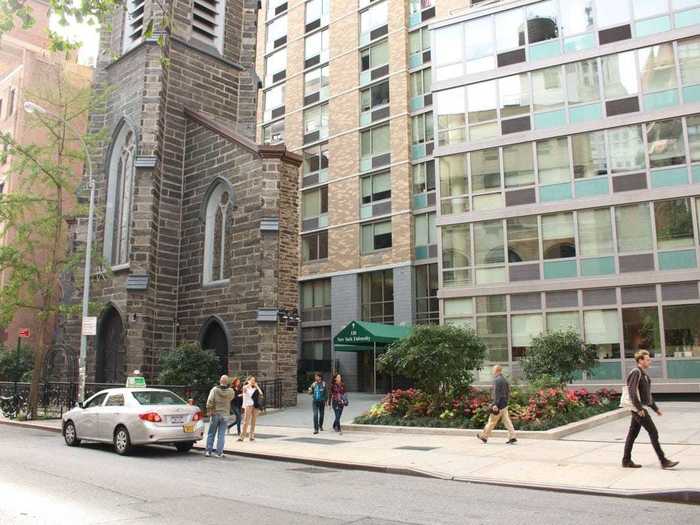
Location: New York
University response: NYU released a statement on May 29 stating that the university supports "those who oppose hate, ignorance, and divisiveness."
The statement included resources for supporting students and faculty, including a bias response line, which was designed for community members to report incidents of and concerns about discriminatory behavior at NYU.
NYU has also compiled a webpage of anti-racism education resources.
Cornell University
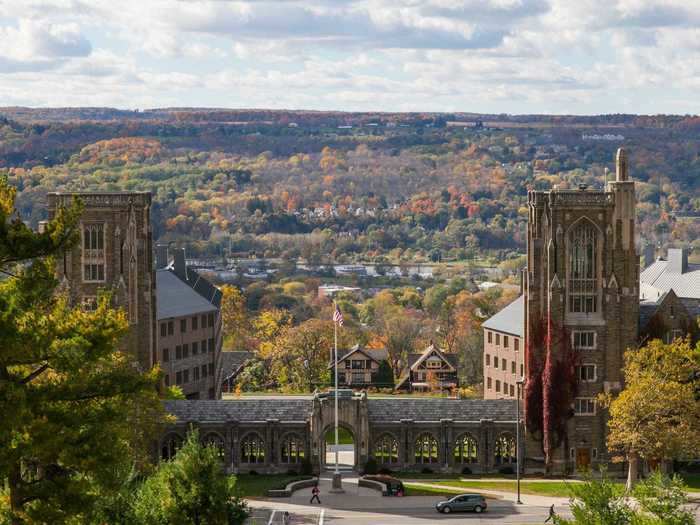
Location: Ithaca, New York
University response: Cornell University President Marth Pollack released a statement on May 29 saying that the university will do everything it can to combat racism, and so will she. "The amount of pain in the Black community is unfathomable," she said.
Pollack followed up with campus initiatives including accessible Zoom meetings sessions about topics like institutional racism and a community book read of "How to Be an Antiracist" by Ibram X. Kendi.
Pollack announced that Juneteenth would be a holiday for Ithaca and Cornell Tech faculty and staff two weeks later.
Princeton University
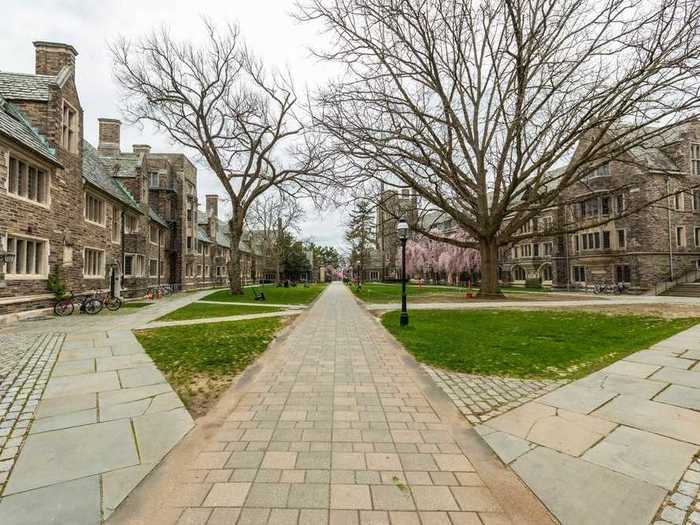
Location: Princeton, New Jersey
University response: Princeton University President Christopher Eisgruber released a statement on May 31 calling Floyd's death "heartless," and Taylor's and Arbery's "unjust."
Community members have a responsibility to confront and combat racism "wherever and whenever we encounter it," he said. Eisgruber ended by saying that they should join the graduating class of 2020 in creating a better world.
On June 22, Eisgruber followed up with a second statement about Princeton's initiatives for combatting racism. He shared that there will be a new summer grant program for serving racial inequalities and injustices and new classes related to anti-racism.
Eisgruber added that the university still must do more and provided an email address for community members to send their ideas.
The University of Pennsylvania
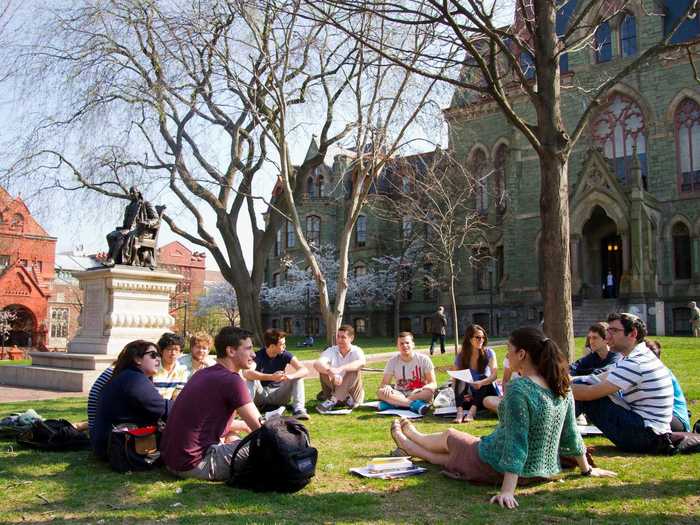
Location: Philadelphia, Pennsylvania
University response: Amy Gutmann, the president of the University of Pennsylvania, released a statement about Floyd's death on May 30, calling it "tragic."
"Our hearts are filled with sadness for this senseless loss of life," she added.
Gutmann said she supports the school's Black students and faculty and concluded by asking the campus community to recommit to making the University of Pennsylvania a safe and inclusive environment.
The following week, Gutmann announced new anti-racist initiatives, including a focus on civic engagement during the upcoming school year.
On Juneteenth, the university stated that all non-essential staff should take the day off and reflect on racial injustices.
Yale University

Location: New Haven, Connecticut
University response: Yale University President Peter Salovey released a statement on May 31 addressing Floyd's death and calling on the Yale community to try to turn their feelings of fear into hope, to come together, and to fight injustice.
Yale also put together a webpage that shares all of Yale's leaders' statements about George Floyd and the devastation of systemic racism.
Yale also released a statement about reforming the Yale Police Department through initiatives like limiting police response and training police to minimize the use of force.
University of California, Los Angeles (UCLA)
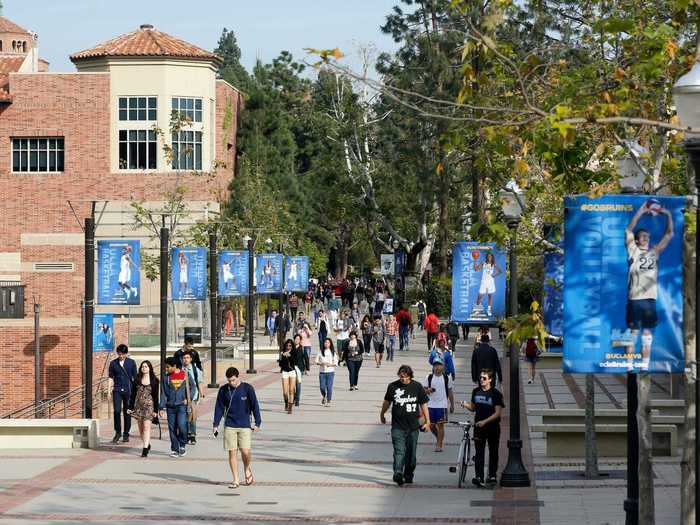
Location: Los Angeles
University response: UCLA released a statement on May 30 about Floyd's death. Titled "The Pain Behind the Protests," it described the incident in detail: "What was so chilling was the relaxed demeanor of a police officer — sworn to protect and to serve — his hands calmly in his pockets, kneeling on the neck of a fellow human being, indifferent to his cries of pain and the fear for his life."
The statement discussed UCLA's responsibility to care about racial injustice and make the campus a safe and just place for all students, mentioning upcoming campus initiatives, like virtual reflection spaces where community members can process their feelings about current events and a link to a webpage dedicated to racial trauma resources.
On Juneteenth, the university encouraged community members to use the day to reflect on racial injustice.
Columbia University

Location: New York City
University response: Columbia University President Lee Bollinger released a letter about Floyd's death on June 1.
"The horrifying ending of the life of George Floyd, a citizen in the very system of justice intended to protect him, and us, which then, along with other recent tragic deaths, drew back the curtains on centuries of invidious discrimination against African Americans and others," he said.
Bollinger shared that he hopes the country can bring an end to this discrimination together, adding that he is concerned about the current political culture in the U.S.
He said that Columbia University has higher standards for the intellectual character than political leaders, but that these events show that the U.S. political system is at the "opposite end of the spectrum," adding that he thinks they are a sign of a nation heading towards authoritarianism.
Bollinger added that colleges must hold themselves accountable for their contributions to systemic racism and that Columbia is determined to change for the better.
Bollinger also declared Juneteeth a school-wide holiday adding that it has both contributed to systemic racism and helped combat it. He added that the university still has much anti-racist work to do.
University of California, Berkeley (UC Berkeley)
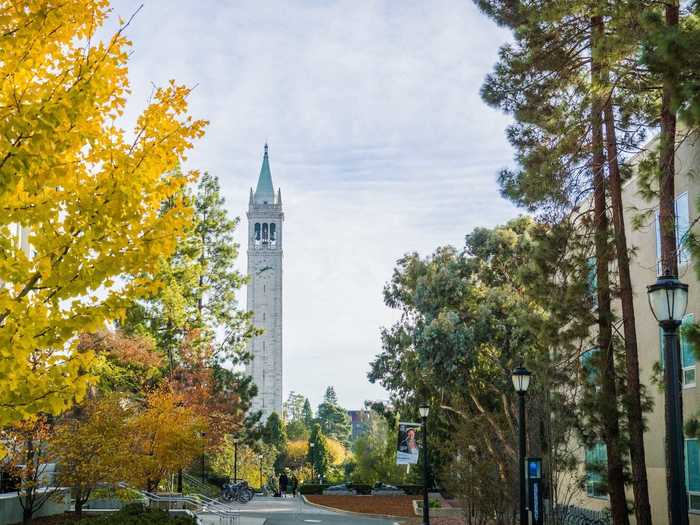
Location: Berkeley, California
University response: Carol Christ, chancellor of the University of California in Berkley sent out a letter on June 4 inviting the UC Berkley community to come together for a moment of silence for Floyd.
In the same letter, Christ said that she hopes community members are taking time to call for justice, adding that this moment in history is unlike anything she's seen before.
"As an institution of higher learning, it is our role and responsibility to examine and teach about the critical, challenging, and at times thorny issues facing our society," Christ wrote. She concluded with links to virtual events meant to educate the community about systemic racism and police brutality.
Massachusetts Institute of Technology (MIT)

Location: Cambridge, Massachusetts
University response: Leo Rafael Reif, president of the Massachusetts Institute of Technology (MIT), addressed the community on May 29, which also happened to be the school commencement day. In the letter, titled "Minneapolis, our nation and our community," Reif wrote that although commencement day should be a perfect day for the campus community, this year, "it is impossible to face ... without an overwhelming sense of concern for our nation." Floyd's death has highlighted systemic racism in the U.S. "yet again," he said.
Reif said that these events are weighing heavily on certain community members, especially those who are Black. He added that he has a desire to help while feeling powerless and that he believes other community members do too.
MIT community should come together and confront its mistakes, Reif said, adding that John Dozier, MIT's Institute Community and Equity Officer, will help guide this process.
MIT held a virtual vigil the following week. Fifteen MIT community members spoke, including Dozier.
MIT observed a school-wide holiday on Juneteenth with Rief encouraging community members to take the time to learn about the historic day. He included links to several resources with free information on the topic, adding that while some are just learning about Juneteenth, others have celebrated it their whole lives.
Reif wrote that he is working with student leaders from the MIT Black Students' Union, the MIT Black Graduate Student Association, and the Academic Council Working Group to create a plan for addressing systemic racism at MIT.
Stanford University
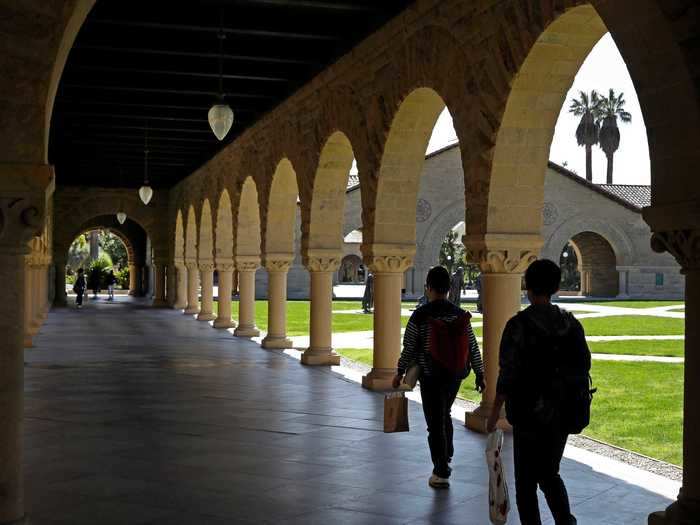
Location: Stanford, California
University response: Marc Tessier-Lavigne, president of Stanford University released a letter to the campus community on June 10 saying that recent events have brought systemic racism and police brutality to light. Stanford is committed to creating a safe and inclusive community for all students, he wrote, and in doing so the university must take a look at its own public safety practices.
Tessier-Lavigne said that Stanford began conversations with Black students about being more inclusive last year. These students recommended accelerating the initiatives they have been considering.
One of these initiatives is the Community Board on Public Safety, which is meant to ensure a safe and inclusive environment by building trust with the community, Tessier-Lavigne said, adding that there will be more initiatives confronting anti-Black racism in the future.
Harvard University

Location: Cambridge, Massachusetts
University response: Harvard President Larry Bacow issued a letter about Floyd's death on May 30. Titled "What I believe," the letter addressed the coronavirus pandemic and Floyd's death. Bacow compared this historic moment to when Martin Luther King Jr. was assassinated in 1968, followed by Bobby Kennedy.
Bacow said he believes no one is above the law and that how a society treats its "most vulnerable members" reveals its justness. He concluded by saying he hopes others in the Harvard community are inclined to reflect and act on their beliefs, adding that its the responsibility of the Harvard community to do so.
In a June 10 message, Bacow addressed the role of the Harvard University Police Department (HUPD) amid protests and discussions of police brutality across the country. Bacow wrote that in early 2020, HUPD was put under review after receiving allegations of racism. Harvard called on industry experts, Brenda Bond and Ronald Davis, to review the university's policing practices, Bacow said.
He released another statement the following week declaring Juneteenth a holiday, announcing that the school's newspaper, the Harvard Gazette, would provide coverage on the topic. He encouraged the community to use the time to learn about racial justice.
On June 21, Bacow released a statement about a racist email that was sent to thousands of Harvard community members. He apologized that it happened and implored those who haven't opened it yet not to. "A racist attack against one of us is an attack against all of us," he wrote, adding that the university is investigating the incident.
The next day, Bacow announced that Sherri Charleston, who was the assistant vice provost for diversity, equity, and inclusion, and chief affirmative action officer at the University of Wisconsin, was joining Harvard as the new chief diversity and inclusion officer.
READ MORE ARTICLES ON
Popular Right Now
Popular Keywords
Advertisement